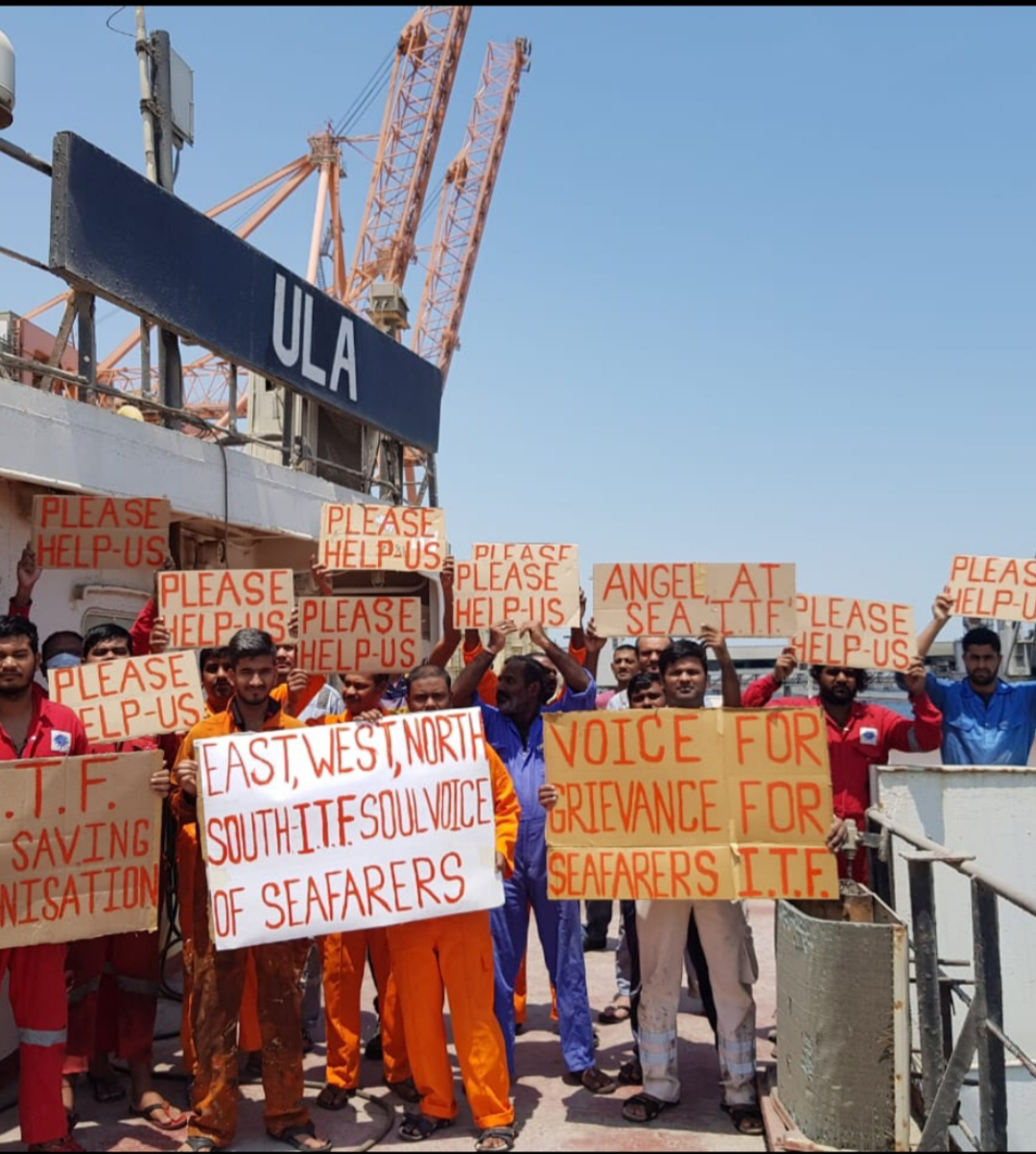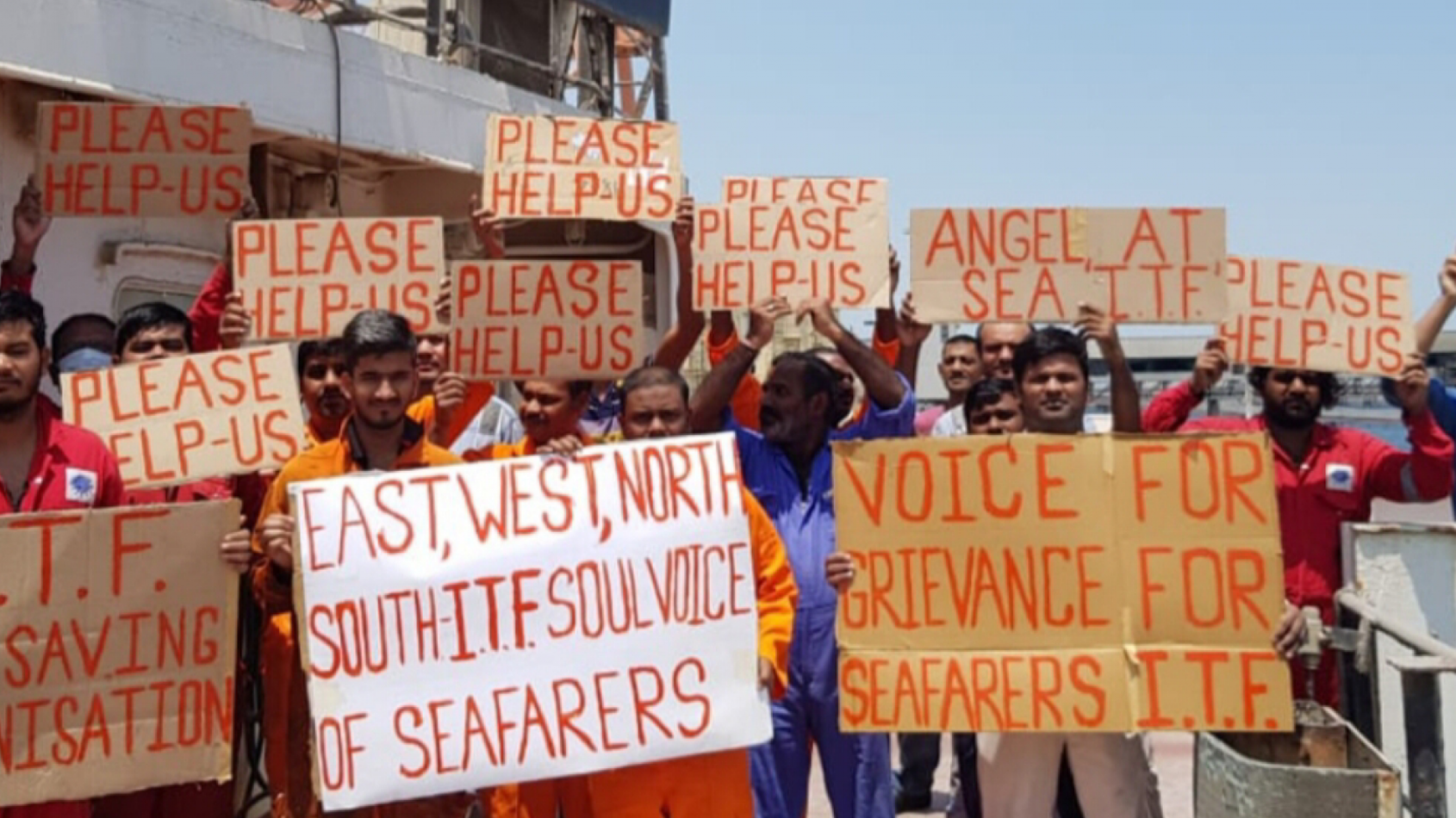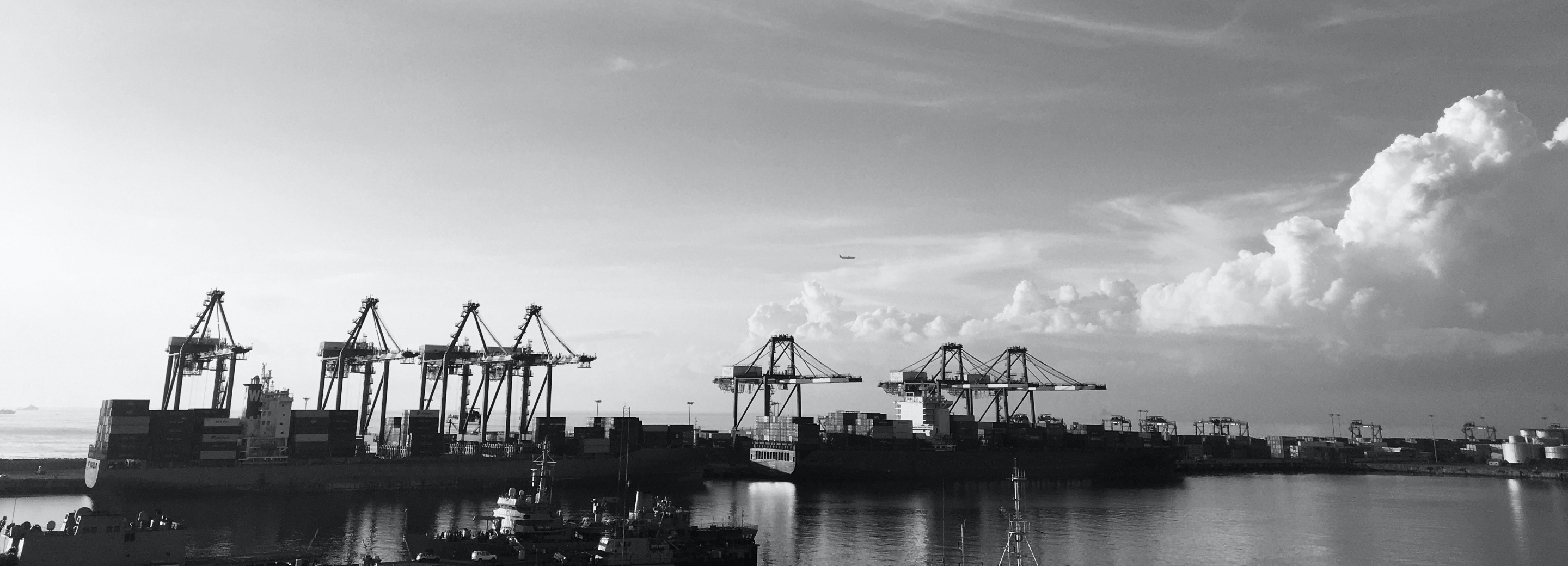
After 11 months without pay for their families, 19 seafarers on board the MV Ula bulk carrier in the port of Shuaiba, Kuwait have gone on a hunger strike.
The mixed crew from India, Turkey, Azerbaijan and Bangladesh are demanding immediate repatriation and payment of $410,415.65 they are owed in wages.
They have rejected all meals from 7 January, saying they cannot eat while their families go hungry. Their hunger strike now drags in to February.
“We only drink water to keep us going,” one said.
Six of the crew have already been hospitalised to stabilise their blood pressure and sugar levels, before they were returned to the ship. The seafarers remain at risk of dying if they continue to refuse food.
“Our families are not getting money to buy food, basic necessities, medical treatment,” said one seafarer.”
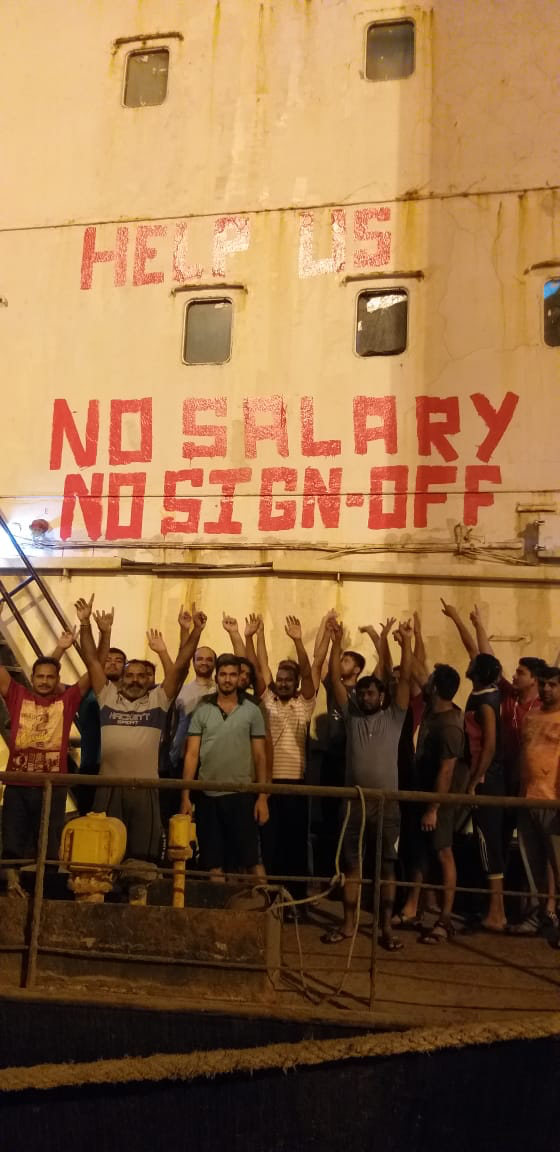
“The crew have been on board the vessel for 14 months – some for longer than 19 months. One has been 26 months on board. They are asking Kuwait to replace them with local crew, so that they can go home to their families.” said Mohamed Arrachedi, ITF Arab World and Iran Network Coordinator for the International Transport Workers’ Federation. “They have not been paid for 11 months.”
Arrachedi said the ITF has offered the crew legal assistance. The offer is part of the ITF’s long-running interest in the case and support for the crew.
The ITF contacted the parties with obligations and responsibilities towards the crew more than a year ago – in September 2019. This included the Qatari ship owner and their insurer. Since then, the ITF has been fighting again and again to get the crew food, water and the substantial wages payments that they are owed.
The ITF also reported the crew’s abandonment to global agencies the International Labour Organization and the International Maritime Organization.
When Arrachedi first got a call for help from the crew, the MV Ula was in Iran and had no lighting, no fuel and little food and water.
“At the time, 25 crew on board became sick due to lack of medication, fresh drinking water, and food,” said one crew member. “At times we only had only enough provisions for one meal a day.”
The crew made banners to draw more attention to their case. “Please help us. ITF soul saving organisation, Angel at sea. Voice for grievance for seafarers – ITF,” the banners read.
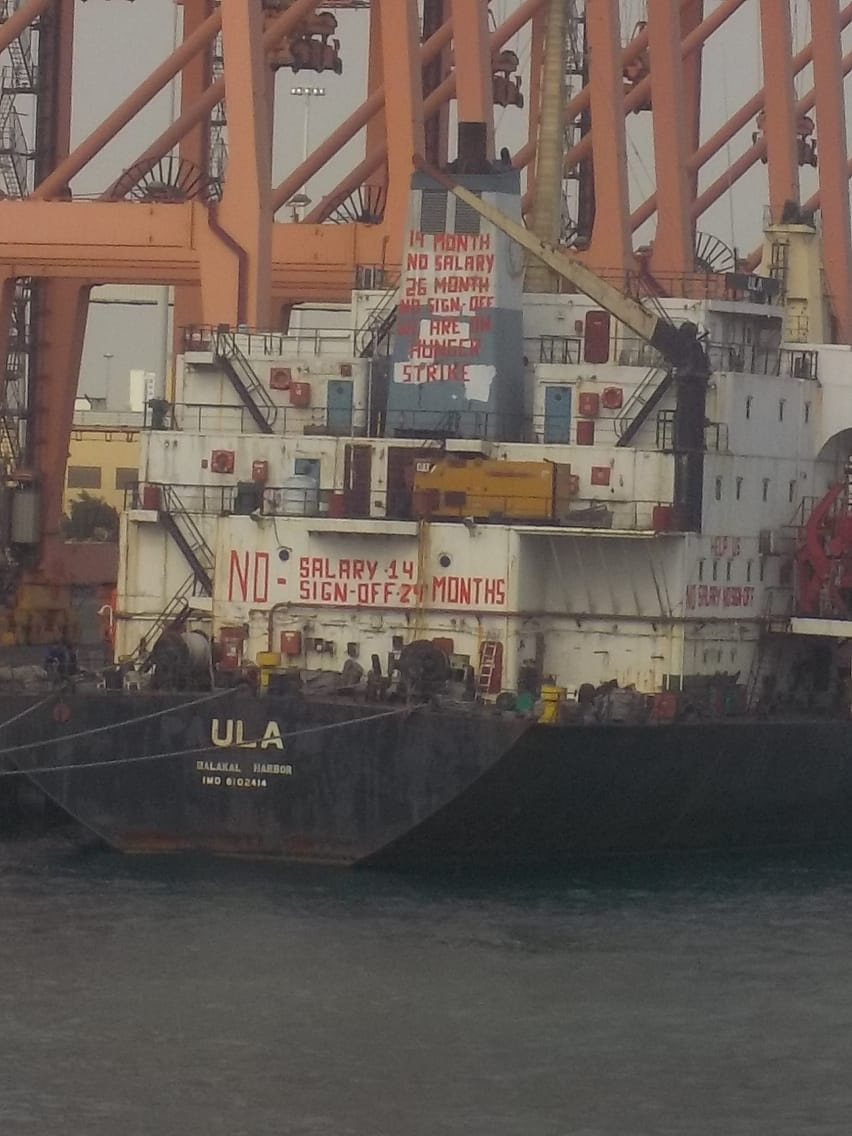
Ship detained in Kuwait, company chairman wanted for arrest in Qatar
The ITF continued pushing for the owed wages, and the owner came forward with some of the pay owed to some of the crew. In April 2020, the ITF insisted that the vessel be admitted to the port at Shuaiba, in Kuwait. But the crew were still not allowed ashore.
When wage payments stopped for the third time, tensions on board escalated and four seafarers were locked in their cabins. The master reported a mutiny on board to the Palau and Kuwaiti authorities.
“We didn’t see the sun, we didn’t see the moon, we didn’t feel the breeze for four months and 16 days,” one seafarer from the MV Ula recalls. “It was like being in jail.”
A special committee was formed with representatives from the ILO, IMO, ITF, the Qatari owners, the Indian Embassy, and the Palau flag State where the vessel was registered. But no solution was reached.
In May, the Kuwait Port Authority took action and detained the ship and its load of clinker construction pre-materials. The authorities uncovered the ship owner Aswan Trading and Contracting of Qatar had being blacklisted since 13 February 2017, and that the company’s chairman was wanted by Qatari law enforcement.
When a ship is abandoned the vessel’s Flag State normally steps in to preserve the life of the crew and ensure owed wages are paid.
“Palau failed to do its job,” argues Arrachedi. “The ITF repeatedly raised the lack of provisions and wages owing, but no action was taken.”
After discussions with ITF, IMO and the Kuwaiti Authorities, Palau terminated the ship’s registration in September 2020 with the crew demands unresolved. It was determined that this would better allow Kuwait to resolve the matter. This exposes the lack of power and willingness on the part of flag states to take appropriate action in these circumstances.
“Since the ship is now flagless, it is left up to the Kuwaiti maritime authorities to resolve the situation. Kuwait has a legal and moral responsibility to save these seafarers while there is still time. As always, the ITF is on standby to assist in any way we can,” said Arrachedi.
Covid-hit families need to be paid thousands in owed wages
Six crew, including three who had been confined to the cabins, were signed off the ship in September – but without their owed salary. Covid-related job and income losses back home make the non-payment of wages a serious issue for seafarers and their families.
“My mother, father, sister and younger brother depend on me to support them since my father lost his job due to the Covid pandemic,” said one seafarer still on board. “So now I am the only one with a job. But I’ve had no salary for 11 months. They took out a loan, but they can’t pay it back.”
Usually in cases of abandonment, the ship’s insurance would cover some wages for the crew. Or the owner. But the insurer is not an affiliate of the P&I Club and since the Kuwait Port Authority have facilitated a crew change to replace the crew, the owner refuses to pay. The crew are now calling on the Kuwaiti authorities to act.
Crew complain that the Kuwait Port Authority keep saying ‘very soon you will get your salary and go home’.
"But that is what we have been told for five months,” the seafarer said. “We have gone nearly 12 months without a single dollar. We don’t know how many months it will take. We need written guarantees.”
The Ula crew say that all along the authorities which are supposed to have taken action have not acted.
"The flag state did zero,” one said. “The Kuwait Port Authority provide basic necessities on board, but our families get nothing. They need to eat too,” he said.
The ITF has reiterated its offer of legal assistance and called on the Kuwaiti authorities for an urgentsolution. The ITF’s Mohamed Arrachedi is concerned for the crew’s welfare.
“To be on hunger strike since 7 January is very serious and requires urgent action,” said Arrachedi.
“Lives are at risk. We believe the Kuwaiti authorities have sufficient instruments to take the exceptional steps needed to ensure the crew are paid and repatriated. The ITF is on standby to assist in any way we can.”
The crew's hunger strike continues.
